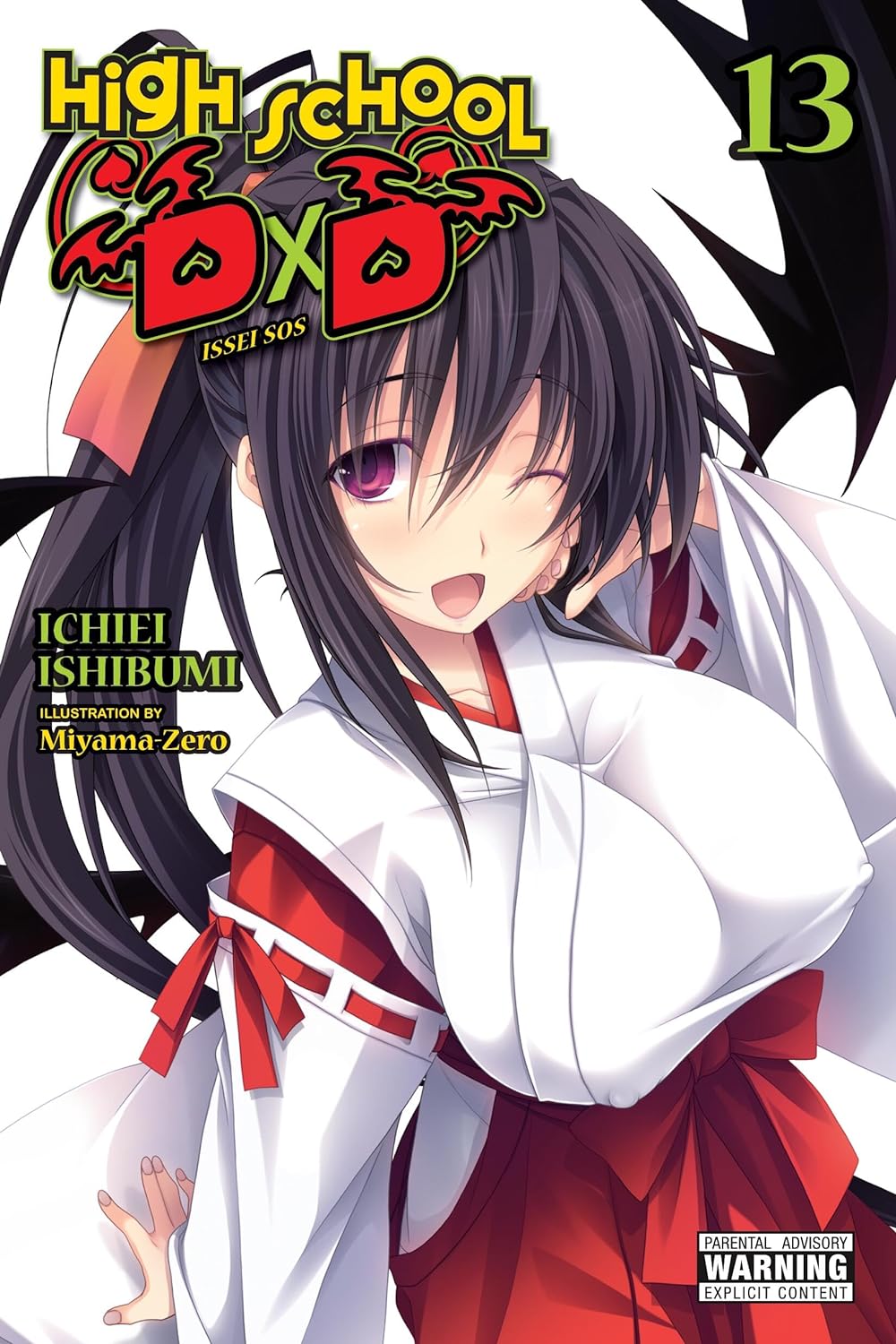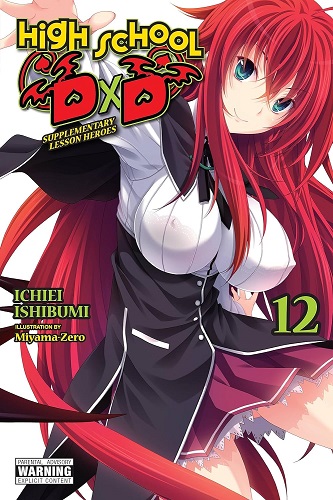By Ichiei Ishibumi and Miyama-Zero. Released in Japan by Fujimi Fantasia Bunko. Released in North America by Yen On. Translated by Haydn Trowell.
Humor is always subjective, and what is funny to one person won’t be funny to someone else. So, as you can imagine, this review is even more my personal opinion than most of them are. This isn’t helped by this volume being the second short story volume, meaning that it almost by necessity consists of funny stories, as any drama needs to be saved for the main series. I I will note that my enjoyment of these stories was in inverse to how much Issue was screaming like a tsukkomi in them. Issei can be a great character in the shonen hero mode, and he can also be fun when he’s being a pervert. But being a straight man shouting in disbelief just doesn’t suit him well, at least in the “humor” mode. The first two short stories have, as their main source of humor, Issei essentially saying “Are you kidding me?”, in variations, over and over again. It makes him more annoying than he usually is. Which is amazing, given Issei can be pretty annoying.
There’s no interconnecting plot, so the stories are: 1) Demon King Leviathan is making a movie with herself as a magical girl, and wants Issei, Asia, Gaspar and Xenovia to play the villains; 2) the title story, where Kiyome (the tennis club captain) asks Issei to pretend to be her boyfriend, which ends up meaning he has to fight a monster tamer battle; 3) Issei gets a combination of a demon cold and a dragon cold that puts him in hospital, and the cast nurse him back to health; 4) Ravel comes to Rias’ peerage and asks them to help her brother Riser, who has become a shut-in after his loss to Issei; 5) The angels, fallen angels and demons all have a three-way athletic competition, which is very heavily based on the standard Japanese high school sports festival; and 6) in the one original for the volume story, Rias’ nephew Millicas comes to visit the group so that he can experience human life… and maybe get in a good fight or two.
As I’ve observed in prior volumes, it’s become pretty clear that there is not going to be a “best girl” in this series, at least not in the sense that there will be a loser. Issei is going to have his harem. As such, it’s not too much of a surprise that he might be thinking more about that future, and about being a parent. This takes place in the final story, which is also the best one (though I was also amused at the nurse competition to make Issei well, which was hitting all the essential cliches but also gives us… drumroll please… sex-changed Kiba!). As I said, Issei doesn’t make a good tsukkomi, but there are things he is very good at, and being a mentor/big brother figure is one of them. This presumably will also translate into being a good dad, and certainly Akeno is ready and willing to start right away, though sex, as you’d expect, continues to not happen. But we’re closer.
So this is a short story collection that starts weak and gets stronger as it goes along, which is better than the alternative. Next volume I hear… Irina gets to do something? Nah, can’t be right.



